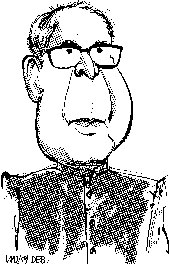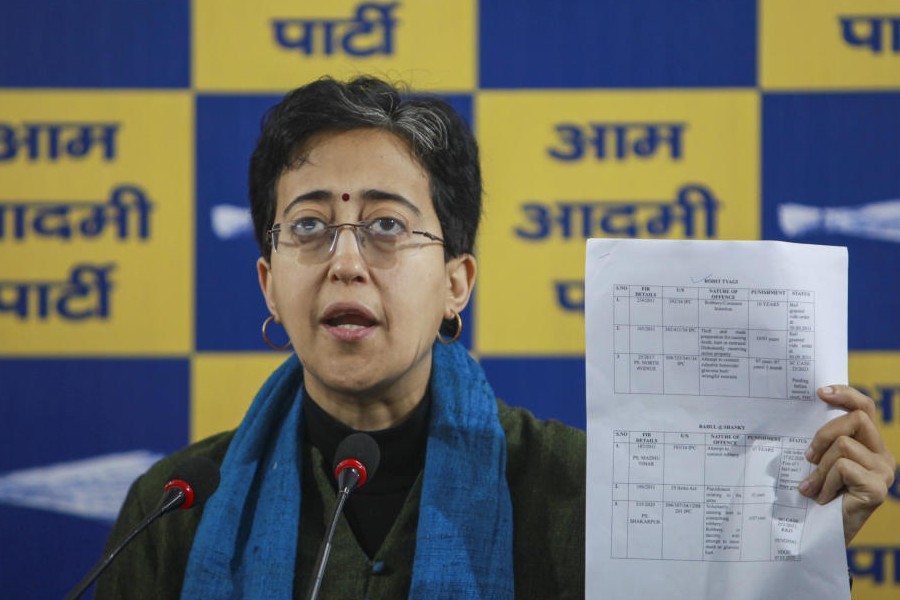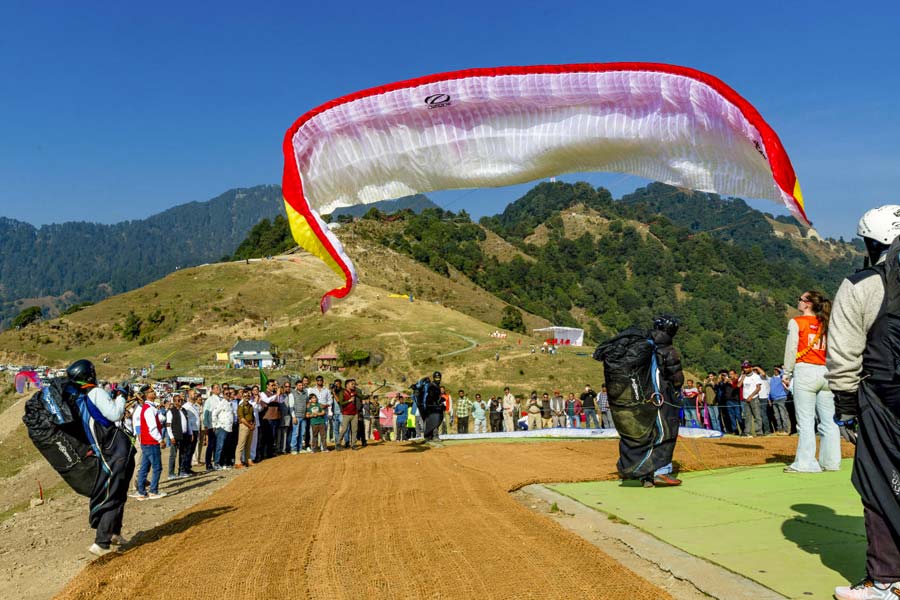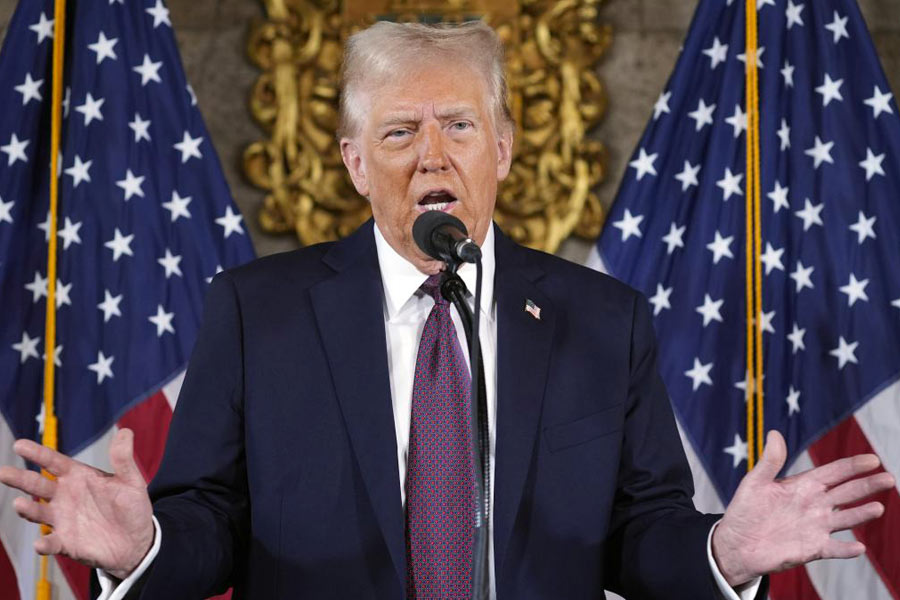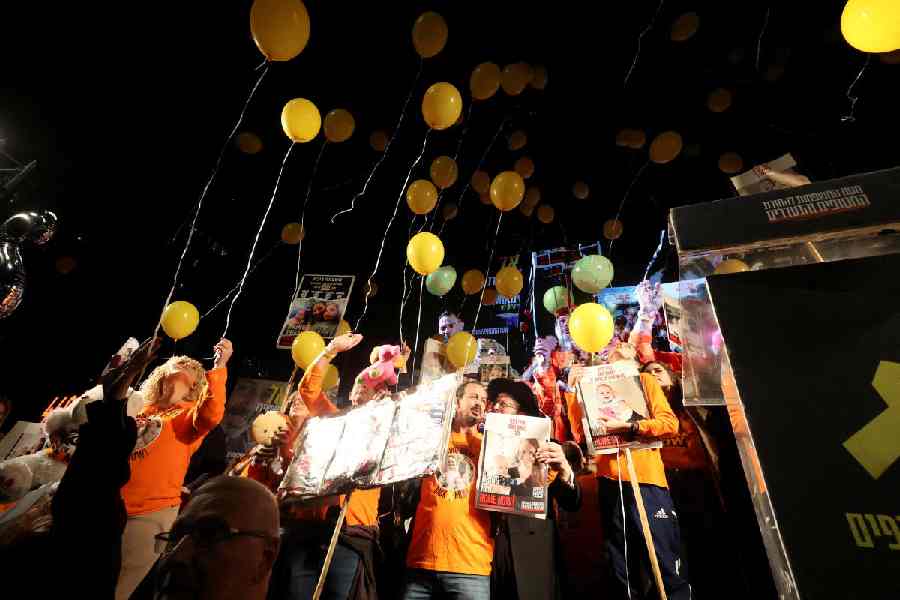 |
At the stroke of midnight, when India sleeps, Pranab Mukherjee wakes. Truth be told, he has been up since the crack of dawn. But midnight or thereabouts is when he is raring to go. The day’s work is done, and people milling around his residence in New Delhi’s Talkatora Road have almost all left. The much-travelled foreign minister now has the time to sit back and enjoy another journey — this time down memory lane.
And that is one story-paved path, packed with little nuggets of modern Indian history that few have witnessed and fewer still remember. But memory, clearly, is something that Pranab Mukherjee takes pride in. His acquaintances hold that he is a pocket-sized encyclopedia on contemporary India. Ask him which budget proposal was passed when, or when Indira Gandhi said what, and he will give you the answer — and quite possibly a story to go with it.
There is a book there that’s waiting to happen. Mukherjee, 70, has already written a 300-page, yet-to-be-published tome on the Congress party — tracing some perilous times starting with the defeat of Indira Gandhi in 1977 to her death in 1984.
“The book is on how I have seen things — it’s history from a personal angle,” he says. “But I can’t think of publishing it because quite a few important characters of the time are still there,” he says. “But I’ll write it all before I go,” says Mukherjee.
Memory is a cursed trait — it haunts you when it fails and it haunts you when it refuses to die. Mukherjee’s mental inbox is full of vivid little postcards. But not many of these can ever be publicly read.
But then it was this bottomless memory that got Mukherjee into Parliament. He was 30 when he joined the fledgling Bangla Congress and caught the attention of its leader, Ajoy Mukherjee. Meanwhile, he had finished his law degree, started teaching in college and done two masters degrees in history and political science. “My mother used to scold me: why are you doing your MA over and over again?”
In 1969, he was sent to Rajya Sabha as a Member of Parliament. “Ajaybabu had a lot of trust in me. He knew about my interest in politics and my family background. My father was a freedom fighter and a member of the All India Congress Committee,” says Pranab Mukherjee. “I dealt with policy and documentation and had a good memory. I could recall every election result in the country since 1952. Even now, I remember 70 per cent of it.”
One election result that Mukherjee would fondly remember is that of 2004, in a constituency called Jangipur in West Bengal. For long years, it was derisively said of Mukherjee that despite his many accomplishments — he had been in charge of finance and revenue, and was the deputy chairman of the Planning Commission — he couldn’t win a popular election. The jinx finally broke when Mukherjee won from Jangipur, and was put in charge of defence and later moved to external affairs in Manmohan Singh’s government. Many had thought that he would be given the all-important home portfolio. But Mukherjee has often seen near-certain moves turn into last-minute disappointments.
In 1991, after the death of Rajiv Gandhi, some thought he would be Prime Minister. The post went to P.V. Narasimha Rao. “K. Karunakaran and S.S. Ray asked the MPs, and the majority wanted Rao,” he says simply. Rao didn’t even include him in his Cabinet to begin with. “I once asked him why he didn’t. He said there were reasons. He didn’t explain, and I didn’t ask.”
But he had old links with Rao. Mukherjee, Rao and former President R. Venkataraman constituted Indira Gandhi’s trusted troika. “All three Brahmins, incidentally,” says Mukherjee, almost as a non-sequitur.
Indira Gandhi first noticed Mukherjee, whose party merged with the Congress in 1971, when he was holding forth in Parliament on bank nationalisation. Later, his speech on Bangladesh — it was the year of the war — prompted Gandhi to select him for an inter-parliamentary union meeting where Mukherjee aired India’s views on Bangladesh.
“She was cent per cent Indian,” he says. “Or ferociously patriotic, as Henry Kissinger called her.”
Mukherjee, who was made deputy minister in 1973 and elected to the Rajya Sabha five times, relates an anecdote to press his point. India had won the World Cup cricket championship in 1983 and a jubilant Gandhi called him up to break the news. “I knew nothing about cricket — didn’t even know who was playing. But I had to muster up adequate enthusiasm!”
Mukherjee’s ties with Gandhi strengthened after the Emergency. The minister recalls how he was in Calcutta for a Rajya Sabha election when the Emergency was declared in June, 1975. He had no idea what had happened, not even when Gandhi rang him up and asked him to return to Delhi. “We’ve had some major developments. And I had to take drastic action,” she told him.
“She had been saying for a while that something drastic had to be done. J.P. (Jayaprakash Narayan) had just had a rally where he’d urged the army and the police to disregard the government. She thought the army would take over. And then (former West Bengal chief minister) Siddhartha Shankar Ray told her about the provision of the internal Emergency.”
Later, when Gandhi was defeated and abandoned by many in the Congress, Mukherjee would visit her every day. When she returned to power in 1980, he was back in her Cabinet.
“I was the number two even then. In the PM’s absence, I used to preside over Cabinet meetings,” he says.
Even now, it is he who takes over when Manmohan Singh is away. The man who has often been described as a prime ministerial candidate has always remained the groom’s best man.
“But why should I want to be PM? I am self-contained,” he says. “Vision, I have. But I don’t have to be the PM to realise a vision.” Mukherjee, for one, would like to strengthen democratic institutions. “And I also welcome social transition. I don’t see churnings as fragmentation but as an assertion. There will be a social integration after this.”
In Mukherjee’s view, India got its foundation of democracy from Jawaharlal Nehru, technology from Indira and modernisation from Rajiv Gandhi. “Rajiv Gandhi would have gone on to become the best Prime Minister India ever had,” he says.
And Rao?
“He was a status quo PM. But remember one thing — he picked Manmohan,” says Mukherjee, before going on to list Rao’s achievements in finance and foreign affairs.
The developments that Mukherjee — and India — saw are all there, neatly scripted in a diary that he has been writing since he was in school. “I inherited this habit from my father,” he says, waving a red, hard-bound diary brought out by a Hyderabad-based media group. “I fill this up, and a Rajya Sabha diary, every year, writing one page a day.”
His childhood entries were about plucking mangoes, or being thrashed in school. His political diary looks at the developments of the day — documenting such events as the killings in Nandigram.
“We are going back to the dark times,” he says about Nandigram. “You don’t have to acquire land from people who don’t want to part with it. And why should the government acquire land at nominal rates when it is for industrialisation? Give them high prices and ensure a total rehabilitation programme,” he says.
He jots down his thoughts in English late at night. The next morning he is up early, doing a Chandi Path and reading passages from the Geeta. He is religious — but not of the sadhu-sant kind, he says. He has been to all but one of the 12 jyotirlingas of Shiva. Kedarnath is the journey still left.
A diabetic, he quit a 20-year-old pipe-smoking habit in 1993. But Mukherjee is still sentimental about his pipes and continues to keep one on his desk. Tanzanian leader Julius Nyerere gave him one, as did former British deputy premier Geoffrey Howe. Indira Gandhi got him three from her travels abroad.
He doesn’t seem to miss smoking — just nibbling at the stem works for him these days. A proud grandfather, he has a busy family life. His elder son is with a public sector company, and the younger one at a private firm. His dancer daughter is his official hostess because his wife, a former singer, has been ailing. What he rues is that his schedule doesn’t leave him with any time for Rabindra Sangeet. “I get to listen to music only when I am on a long drive,” he says.
He doesn’t watch films either. “The last film I saw was Roman Holiday which my wife took me to. But because of Sharmila Tagore I had to see that film,” he complains — “that film” being Rang de Basanti, which needed a defence ministry vetting before it could be passed by Tagore’s censor board.
Mukherjee insists he has no regrets. “Every time I reach some place I think this is it: look at what I have got. As a callow youth, I became a professor. And then I became a principal, and I thought this was it. I went to Parliament, and said, Oh, I am an MP! And then I became a minister. For 45 years, this has gone on,” he says.
Best man, or not, Mukherjee is curiously sanguine about his life. “Sometimes I am a minister, sometimes I am not,” he says, summing it all up.

